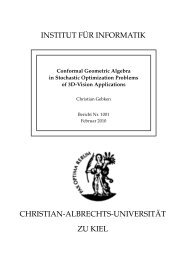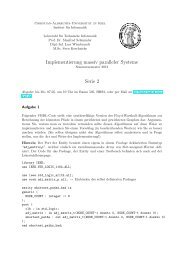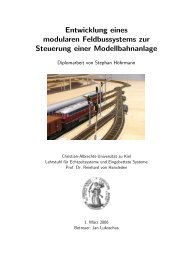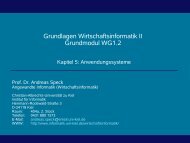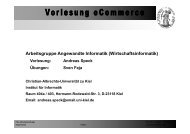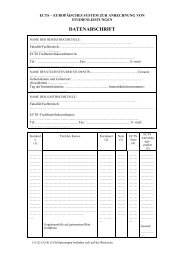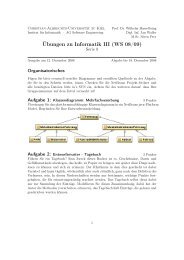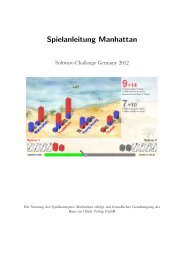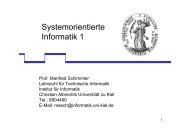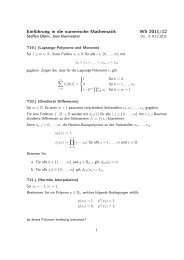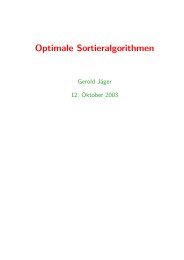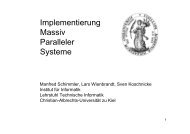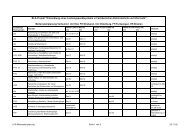Curry: An Integrated Functional Logic Language
Curry: An Integrated Functional Logic Language
Curry: An Integrated Functional Logic Language
Create successful ePaper yourself
Turn your PDF publications into a flip-book with our unique Google optimized e-Paper software.
which takes a search goal and produces a list of search goals. The search operator try attempts to<br />
evaluate the search goal until the computation finishes or performs a non-deterministic splitting.<br />
In the latter case, the computation is stopped and the different search goals caused by this splitting<br />
are returned as the result list. Thus, an expression of the form try \x->c can have three possible<br />
results:<br />
1. <strong>An</strong> empty list. This indicates that the search goal \x->c has no solution. For instance, the<br />
expression<br />
try \x -> 1=:=2<br />
reduces to [].<br />
2. A list containing a single element. In this case, the search goal \x->c has a single solution<br />
represented by the element of this list. For instance, the expression<br />
try \x->[x]=:=[0]<br />
reduces to [\x->x=:=0]. Note that a solution, i.e., a binding for the search variable like the<br />
substitution {x ↦→ 0}, can always be presented by an equational constraint like x=:=0.<br />
Generally, a one-element list as a result of try has always the form [\x->x=:=e] (plus some<br />
local variables, see next subsection) where e is fully evaluated, i.e., e does not contain defined<br />
functions. Otherwise, this goal might not be solvable due to the definition of equational<br />
constraints.<br />
3. A list containing more than one element. In this case, the evaluation of the search goal<br />
\x->c requires a non-deterministic computation step. The different alternatives immediately<br />
after this non-deterministic step are represented as elements of this list. For instance, if the<br />
function f is defined by<br />
f a = c<br />
f b = d<br />
then the expression<br />
try \x -> f x =:= d<br />
reduces to the list [\x->x=:=a & f a =:= d, \x->x=:=b & f b =:= d]. This example also<br />
shows why the search variable must be abstracted: the alternative bindings cannot be actually<br />
performed (since a free variable is only bound to at most one value in each computation<br />
thread) but are represented as equational constraints in the search goal.<br />
Note that the search goals of the list in the last example are not further evaluated. This provides<br />
the possibility to determine the behavior for non-deterministic computations. For instance, the<br />
following function defines a depth-first search operator which collects all solutions of a search goal<br />
in a list:<br />
solveAll :: (a->Success) -> [a->Success]<br />
solveAll g = collect (try g)<br />
where collect [] = []<br />
30




